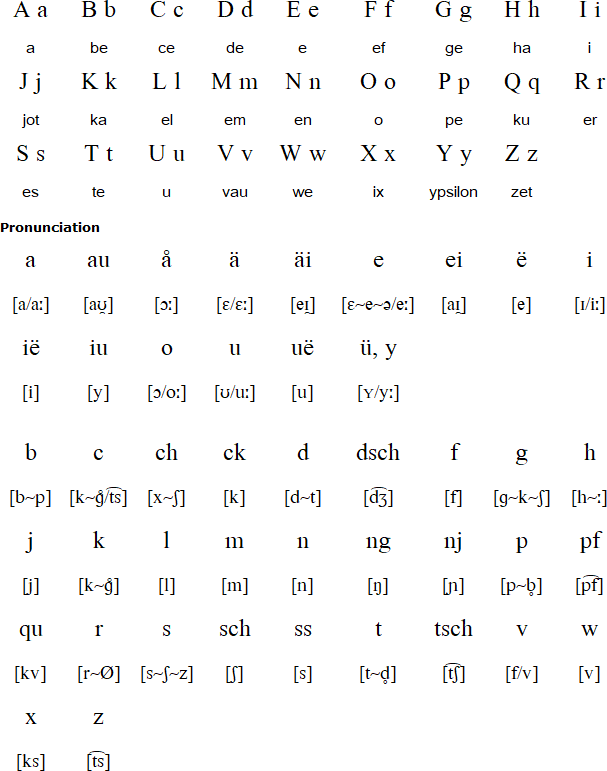Transylvanian Saxon is a variety of Moselle Franconian German spoken by about 200,000 people in parts of Romania, Germany and Austria, and also in the USA and Canada.
In the 12th century, people of German, Flemish and Walloon origin migrated to Transylvania, which was part of Hungary at the time, and is now part of Romania. Transylvania Saxon emerged as their spoken language. Their descendents lived there until the 1990s, when many emigrated to Germany, Austria, other parts of Europe, and to the USA and Canada. About 17,000 Transylvania Saxons still live in Romania and still speak Transylvanian Saxon.
Transylvanian Saxon first appeared in writing in a 1666 text by Johannes Tröster. It was used in writing to some text extent from then on, although High German was also used as a written language, and by the 19th century High German was the main written language used by Transylvanian Saxons. A dictionary of Transylvanian Saxon was published in 1907, and other materials to learn it have been published since then.
Transylvanian Saxon is closely related to Luxembourgish and Ripuarian, with influences from Hungarian, Romanian and High German. There were once some 250 dialects of Transylvanian Saxon which were mostly mutually intelligible with each other.

Download an alphabet chart for Transylvanian Saxon (Excel)
Fåter auser, dier dau best em Hemmel, geheleget werde deing numen, zaukomm aus deing rech, deing well geschei aff ierden als wei em hemmel, auser däglich briut gaff aus heigd, ond fergaff aus auser schuld, wei mir fergien auser en schuldigeren. Feir aus net en fersechung, saunderen erlüs aus von dem üwwell. Amen.
Our Father, who art in heaven, hallowed be thy name. Thy kingdom come, Thy will be done on earth as it is in Heaven. Give us this day our daily bread, and forgive us our trespasses as we forgive those who trespass against us. And lead us not into temptation, but deliver us from evil. Amen. Amen.
Details provided by Michael Peter Füstumum
Information about Transylvanian Saxon
https://en.wikipedia.org/wiki/Transylvanian_Saxon_dialect
https://de.wikipedia.org/wiki/Siebenbürgisch-Sächsisch
https://tartlau.eu/drupal/Tartlau/Sprache/Die-Sprache-der-Siebenbuerger-Sachsen
https://www.sibiweb.de/mundart/
http://www.woerterbuch-portal.de/woebus_alle/Woebu34?krit=
Radio Siebenbürgen
https://radio-siebenbuergen.de/
Afrikaans, Alsatian, Bavarian, Cimbrian, Danish, Dutch, Elfdalian, English, Faroese, Flemish, Frisian (East), Frisian (North), Frisian (Saterland), Frisian (West), German, Gothic, Gottscheerish, Gronings, Hunsrik, Icelandic, Limburgish, Low German, Luxembourgish, Mòcheno, Norn, Norwegian, Old English, Old Norse, Pennsylvania German, Ripuarian, Scots, Shetland(ic), Stellingwarfs, Swabian, Swedish, Swiss German, Transylvanian Saxon, Värmlandic, Wymysorys, Yiddish, Yola, Zeelandic
Languages written with the Latin alphabet
Page last modified: 07.08.24
[top]
You can support this site by Buying Me A Coffee, and if you like what you see on this page, you can use the buttons below to share it with people you know.

If you like this site and find it useful, you can support it by making a donation via PayPal or Patreon, or by contributing in other ways. Omniglot is how I make my living.
Note: all links on this site to Amazon.com, Amazon.co.uk
and Amazon.fr
are affiliate links. This means I earn a commission if you click on any of them and buy something. So by clicking on these links you can help to support this site.
[top]